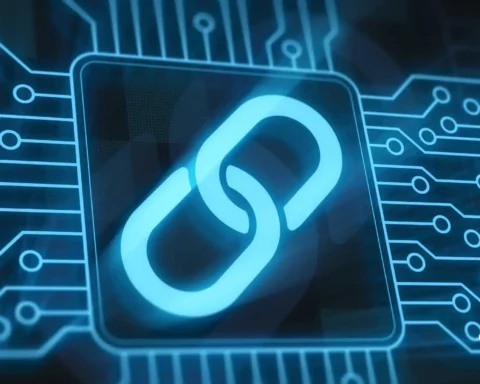Welcome to the fascinating world of helicopter parenting, where hovercraft-like moms and dads take their protective instincts to new heights! In this article, we'll take you on a whirlwind tour of this modern parenting phenomenon, offering insights, anecdotes, and tips to help you navigate the skies of child-rearing. Get ready to explore the ins and outs of helicopter parenting, all while enjoying a lighthearted and informative ride!
Table of Contents
Types of Parenting Styles
Style of parenting plays a pivotal role in shaping a child's development and their approach to life. Four important parenting styles include:
Authoritative Parenting: Characterized by a balanced approach, authoritative parents set clear boundaries and rules while nurturing their child's independence. They maintain open communication, provide support, and encourage their child's self-expression. This style fosters a secure and confident child with strong self-discipline.
Authoritarian Parenting: Authoritarian parents are strict and enforce rules with little room for negotiation. They value discipline and obedience but may lack emotional warmth. Children raised under this style tend to be obedient but may struggle with decision-making and self-esteem.
Permissive Parenting: Permissive parents are indulgent and lenient, often avoiding confrontation. They prioritize their child's happiness over discipline and may have fewer rules. While this approach can lead to a warm and affectionate relationship, it may also result in children struggling with self-control and responsibility.
Uninvolved Parenting: Uninvolved parents provide minimal guidance, attention, or emotional support. They may be neglectful or overwhelmed with their own lives, leaving their child to navigate the world independently. Children raised in this style may face emotional and developmental challenges due to the lack of parental involvement.
Autonomy Parenting: Autonomy-supportive parenting is a child-rearing approach that emphasizes fostering a child's independence, decision-making skills, and self-reliance. It involves allowing children to make choices, learn from their mistakes, and develop a sense of responsibility while providing guidance and support. This parenting style encourages children to become self-sufficient and confident in their abilities.
Each style of parenting has its unique impact on a child's upbringing, and understanding the strengths and weaknesses of these styles is essential for effective parenting.
What is Helicopter Parenting?
In recent years, helicopter parenting has gained significant attention, becoming a widely discussed phenomenon in the realm of child-rearing. This parenting style is often humorously coined due to the perception of parents who "hover" over their children's lives. Helicopter parents are characterized by excessive control, micromanagement, and intense focus on every aspect of their children's existence. While their intentions are rooted in safeguarding and ensuring their child's success, helicopter parenting can have both positive and negative impacts on a child's development.
The term "helicopter parenting" likely originated from the image of a helicopter perpetually circling its target, rarely giving it a moment's respite. Such overprotective parents tend to be highly involved in their children's lives, monitoring their activities, decisions, and even their emotions. This constant presence of overprotective parents can extend into various aspects of a child's life, including academics, extracurricular activities, friendships, and even choices of clothing or food. Helicopter parenting is characterized by a lack of trust in a child's ability to make decisions or cope with challenges independently.
While helicopter parenting is rooted in genuine concern for a child's well-being and future success, it's essential to delve deeper into why parents adopt this approach. Understanding the motives behind helicopter parenting can shed light on the complex interplay of factors contributing to this parenting style.
Signs of Helicopter Parenting Style
Helicopter overcontrolling parenting exhibits a wide range of family dynamic behaviours that include excessive involvement and micromanagement in their children's lives. Here are some examples of helicopter parenting:
Overbearing Involvement in Homework: Helicopter parents may insist on overseeing every aspect of their child's homework, from choosing the assignments to correcting them. They may even complete the homework themselves to ensure it's done perfectly.
Constant Monitoring of Activities: These parents might keep a close eye on their child's activities, both online and offline. They could constantly check their child's social media profiles, text messages, and whereabouts using GPS tracking apps.
Mediating Peer Conflicts: Instead of letting their children handle disagreements with friends, helicopter moms might intervene, calling other parents or teachers to resolve minor conflicts.
Controlling Extracurricular Activities: Helicopter parents may choose and schedule all of their child's extracurricular activities, often to boost college applications, rather than allowing their child to explore their interests.
Involvement in College Admissions: Some helicopter parents go to extreme lengths to ensure their child's success in the college admissions process. This maternal control can include writing application essays, scheduling interviews, or even attempting to bribe their child's way into prestigious institutions.
Constant Contact: Helicopter parents may call or text their children frequently throughout the day, even during school hours, to check their well-being and whereabouts.
Doing Chores and Tasks: Parental participation to perform tasks and chores for their children that are age-appropriate for the child to handle independently. For example, they might continue to dress, bathe, and prepare meals for their older children.
Hovering During Playdates: During playdates, helicopter parents may remain present and intervene in children's interactions, attempting to micromanage social situations.
Micro-Managing Health and Wellness: Helicopter parents may be excessively concerned about their child's physical well-being and healthy development, demanding they follow a strict diet or exercise regimen to an unhealthy extent.
Intervening in Teacher-Student Conflicts: When their child encounters issues with teachers or schoolwork, helicopter parents may immediately contact the school, demanding special treatment and intervention on behalf of their child.
It's important to note that these examples represent a spectrum of parental control behaviours, and not all helicopter parents exhibit all of them. The degree and intensity of helicopter parenting vary widely among individuals and families.
Reasons Behind Helicopter Parenting
Several factors contribute to the rise of helicopter parenting, making it more prevalent today than in previous generations. It's crucial to recognize that these factors are not necessarily exclusive or mutually exclusive but rather intertwined in the decision-making process of overprotective parenting.
Fear of Harm
One of the primary driving forces behind helicopter parenting is the innate desire of parents to protect their children from harm. This is a fundamental aspect of the paternal parenting style, and the modern world presents numerous perceived dangers, from online threats to physical health and safety. As a result, parents may resort to constant vigilance to ensure their children's well-being, often extending this parental behaviour into aspects of life where it may not be necessary.
Academic Pressure
The competitive nature of education systems and the desire for their college students' well-being and academic achievement to excel lead many parents to become intensely involved in their children's educational journey. The fear of falling behind or missing out on opportunities can result in parents overseeing homework and extracurricular activities and even exerting pressure on teachers and schools to ensure their adult child's success.
Societal Expectations
Societal expectations and the ever-increasing pressure to conform to certain cultural norms can drive parents to adopt a helicopter parenting style. The desire to have a child who excels in every area, from academics to sports and social skills, stems from a belief that this is the only path to success and happiness. The idea that a "perfect" child reflects successful parenting can be a powerful motivator.
Technology
The digital age has ushered in new possibilities for communication and monitoring, which can encourage helicopter parenting. The advent of smartphones, GPS, and tracking apps has made it easier for parents to communicate with their children constantly. This technology allows for near-instantaneous contact, creating an environment where parents may feel compelled to check their child's whereabouts and activities continually.
Cultural Influences
Cultural and societal norms significantly influence parenting styles. In some cultures, intense parental involvement is seen as a sign of good parenting. Parents may feel social pressure to engage actively in their child's life and ensure their success. These expectations can further fuel helicopter parenting behaviours.
Effects of Helicopter Parenting on Your Kids
While helicopter parenting is often rooted in genuine concern for a child's well-being and future, it can lead to a series of detrimental consequences for children of helicopter parents. It's essential to recognize that these negative outcomes are not inevitable and can vary in severity depending on the degree of helicopter parenting and the resilience of the child. Nonetheless, many parenting items emphasize the importance of finding a more balanced approach to parenting.
Hindrance of Independence and Decision-Making Skills
One of the most significant issues associated with helicopter parenting is the hindrance of a child's development of independence, decision-making, and problem-solving skills. Children raised in this environment may struggle with self-confidence and problem-solving as they become accustomed to a parental sense of autonomy at every turn. They may have difficulty making choices, even minor ones, without parental input, which can extend into adulthood and hinder their ability to navigate the challenges of life independently.
Academic Burnout
The intense focus on academic success in helicopter parenting can lead to academic burnout. Children may experience high stress and anxiety levels, often driven by their parents' expectations. The pressure to perform well academically in future studies can be overwhelming, leading to mental health issues and a lack of genuine passion for learning. In some cases, this pressure may lead to academic dishonesty or cheating as children seek to meet unrealistic expectations.
Strained Parent-Child Relationships
Over time, the controlling and overprotective nature of helicopter parenting can strain parent-child relationships. Children may become resentful or frustrated with the constant intrusion into their lives, leading to communication breakdowns, antisocial behaviour, and emotional distance. This can hinder the development of a healthy, trusting relationship between helicopter parenting, as children may grow to perceive their parents as controlling and unsupportive.
Anxiety and Stress for Parents
Parents who engage in helicopter parenting may experience significant outcomes of anxiety and stress with a direct relationship with anxiety. Constantly monitoring and managing every aspect of a child's life can be emotionally draining. The fear of making mistakes or failing to protect their child from potential harm can take a toll on a parent's mental well-being. In the long term, this may negatively affect their overall life satisfaction and symptoms of anxiety.
Impact on Adolescents
Helicopter parenting can have negative effects on adolescents, potentially contributing to higher levels of anxiety and depression. Adolescents raised by helicopter parents may experience low self-esteem, a lack of autonomy, and increased stress due to constant parental control and unrealistic expectations. These factors can lead to feelings of helplessness and hopelessness, which are associated with adolescent depression. Additionally, these adolescents may struggle to develop essential coping skills and emotional resilience, which may show an increase in depression.
Social anxiety and adolescent anxiety can manifest in children raised by helicopter parents as they may struggle to develop self-confidence and independence, having been overly reliant on their parents for decision-making and problem-solving. These children might find it challenging to navigate social situations and cope with the everyday stresses of adolescence, potentially leading to the manifestation of anxiety levels.
Striking a Balance
While recognizing the dimension of helicopter parenting is essential, it is equally important to explore ways to strike a balance between being a caring, supportive parent and a helicopter parent. Finding this middle ground is fundamental for the well-being and growth of both parents and children.
Encouraging Independence and Decision-Making: One of the key strategies for combating helicopter parenting is to encourage independence and decision-making within a supportive framework. Instead of solving problems for their children, parents can guide them through challenges, teaching valuable life skills and fostering resilience. Allowing children to make age-appropriate choices and mistakes is essential for their personal growth.
Open Communication: Maintaining open and honest communication with children is crucial. Parents should create a safe and judgment-free space for children to express their thoughts, concerns, and feelings. Encouraging children to share their experiences and emotions can help build trust and strengthen the relationship between parenting style and children.
Letting Children Explore Their Passions: Supporting children in exploring their interests and passions independently is vital for their personal growth. Parents can provide opportunities for children to discover their talents and hobbies, allowing them to develop a sense of self and purpose. Nurturing these interests can also help children build self-confidence.
Setting Boundaries and Gradually Increasing Responsibilities: Establishing boundaries and gradually increasing responsibilities as children mature is an effective approach. This approach allows children to learn accountability while maintaining a safety net provided by their parents. As children demonstrate their ability to handle more responsibilities, parents can gradually grant them greater freedom.
Managing Parental Anxiety and Expectations: Recognizing and managing parental anxiety and expectations is vital. Parents should understand that every child has unique strengths and weaknesses, and not all children will follow the same path to success. Mistakes are a part of life, and they present opportunities for growth for both parents and children.
Conclusion
Helicopter parenting is an overly involved parenting style characterized by excessive control and constant intervention in a child's life. This article has shed light on the various ways in which helicopter parenting can impact children, including hindering their independence, self-esteem, and ability to cope with challenges. By understanding these effects, parents can make informed choices about their parenting style, aiming to strike a balance that fosters healthy development and well-being in their children.
FAQs
What is a helicopter parent of adult children?
A helicopter parent of adult children is a parent who continues to be overly involved in their grown children's lives, often to an intrusive or controlling extent. They tend to hover over their adult offspring, making decisions for them and offering unsolicited advice or assistance. This can hinder the independence and autonomy of the children of helicopter parents.
What is a tiger mom vs a helicopter mom?
A tiger mom is a strict, demanding, and highly disciplined parent who pushes their children to achieve high levels of academic and extracurricular success, often through a rigid and authoritative parenting style. A helicopter mom, on the other hand, is overprotective and excessively involved in their children's lives, typically providing constant support and intervention, even in adulthood, which can hinder their independence.
What is a dolphin mom?
A dolphin mom is a nurturing and balanced parent who combines the best aspects of different parenting styles, including authoritative and permissive approaches. They strive to maintain a harmonious and supportive environment while encouraging their children's independence and well-being.
What are the positives of helicopter parenting?
Positive effects of helicopter parenting may include increased safety and protection for children, close emotional bonds, and active involvement in their education and activities. It can help children feel secure and supported, especially in their early years.











[…] children's physical and emotional needs and react to them appropriately and consistently. This parenting style offers a layout for understanding children's behavior, nurturing emotional development and […]
[…] is where therapeutic parenting emerges as a parenting style that focuses on empathy, understanding, and emotional connection in […]
[…] blog dives into corporate parenting, its principles, and examples of best practices that local authorities can […]